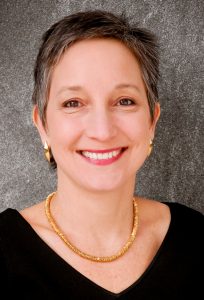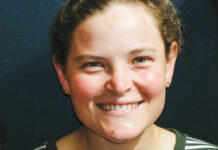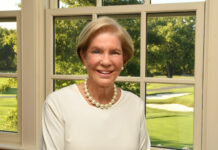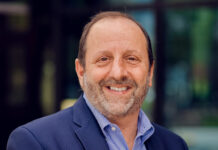Anita Kassof has worked to preserve history and culture at a variety of museums across the Baltimore and Washington, D.C. areas.

Currently the executive director of the Baltimore Museum of Industry, Kassof, 59, has spent her career managing and curating exhibits at museums like the United States Holocaust Memorial Museum in D.C., the Jewish Museum of Maryland in Baltimore and the Museum of Jewish Heritage in New York City.
The Mount Washington resident always had a vested interest in history, but becoming involved with museums was an unexpected development in her life.
“I did my senior honors thesis at Duke [University] about the Holocaust in France during the Vichy period,” Kassof recalled. “I went off to California after college and worked in advertising, because I wanted to do something creative, but I volunteered for the [Jewish Family and Children’s Services] Holocaust Center on the side. This was during the ‘80s, when many Holocaust survivors were beginning to confront their experiences for the first time and speak about them publicly.”
By sheer happenstance, this was also when the U.S. Holocaust Memorial Museum was opening its doors and looking for staff to manage the museum. Kassof secured a position as an assistant curator, which she said was “transformative” for her.
Raised by a Jewish father and a Quaker mother, Kassof described her upbringing as that of a secular humanist. She would not begin to fully engage with her Jewish identity until her work at the Holocaust Memorial Museum caused her to think about it more.
While she has never formally converted, her husband is also Jewish and they made an effort to raise their children in a Jewish household. They do not currently belong to a synagogue but have attended services at Congregation Beit Tikvah and Bolton Street Synagogue in the past.
Much of her work at the U.S. Holocaust Memorial Museum involved meeting with survivors and exhibiting their Holocaust-era belongings as artifacts in the museum.
“So many Holocaust survivors were grappling with their own stories, and I had the privilege of meeting with them, hearing their stories and preserving their artifacts,” Kassof said.
Kassof and her family eventually moved to Baltimore, where she started working as the associate director at the Jewish Museum of Maryland — where she still sits on the board.
Though she was in a more directorial position, she was still largely involved with curating exhibits. One of her works was “Voices of Lombard Street,” about the historic Jewish neighborhood, which is still on display at the museum today.
“It was very forward-looking,” she said of the exhibit. “It’s a portrait of a neighborhood and an exploration of how different groups — Jewish people, Italians, African Americans — interacted. It’s a story about urban change and immigration, and we did a lot of community outreach for it.”
While she works at the more secular Baltimore Museum of Industry now, Kassof has had a great deal of experience with more specifically Jewish museums and believes they face unique challenges compared to others.
“I understand the struggle to create relevance for and connections with audiences who may think the museum’s subject matter has nothing to do with them,” Kassof explained. It was something she had to think about while working at the U.S. Holocaust Memorial Museum, where visitors come from all over the world. “Museums have a lot of work to do to make sure we’re serving our communities in the way they want, and that we are demonstrating to them why we matter and why we are relevant.”
Kassof considers her greatest accomplishment to not be any of the exhibits she has curated or the museums she has helped direct, but the fact that she and her husband have raised two “spectacular kids.”
Outside of her museum work, she is on the board of the Greater Baltimore Cultural Alliance, and in her free time, she enjoys dogs, cooking and building dollhouses.
Above all else, though, she wants to remind people of the importance of museums as educational and cultural centers.
“Museums are essential to the health of a civil society,” she said. “And even in this age, when there’s a lot of distrust out there, museums remain a relatively trusted source of information. So I think that we have an opportunity to be a forum for inspiring and facilitating important dialogues in spaces where people feel they can come together and learn new things in a trusted environment.”







